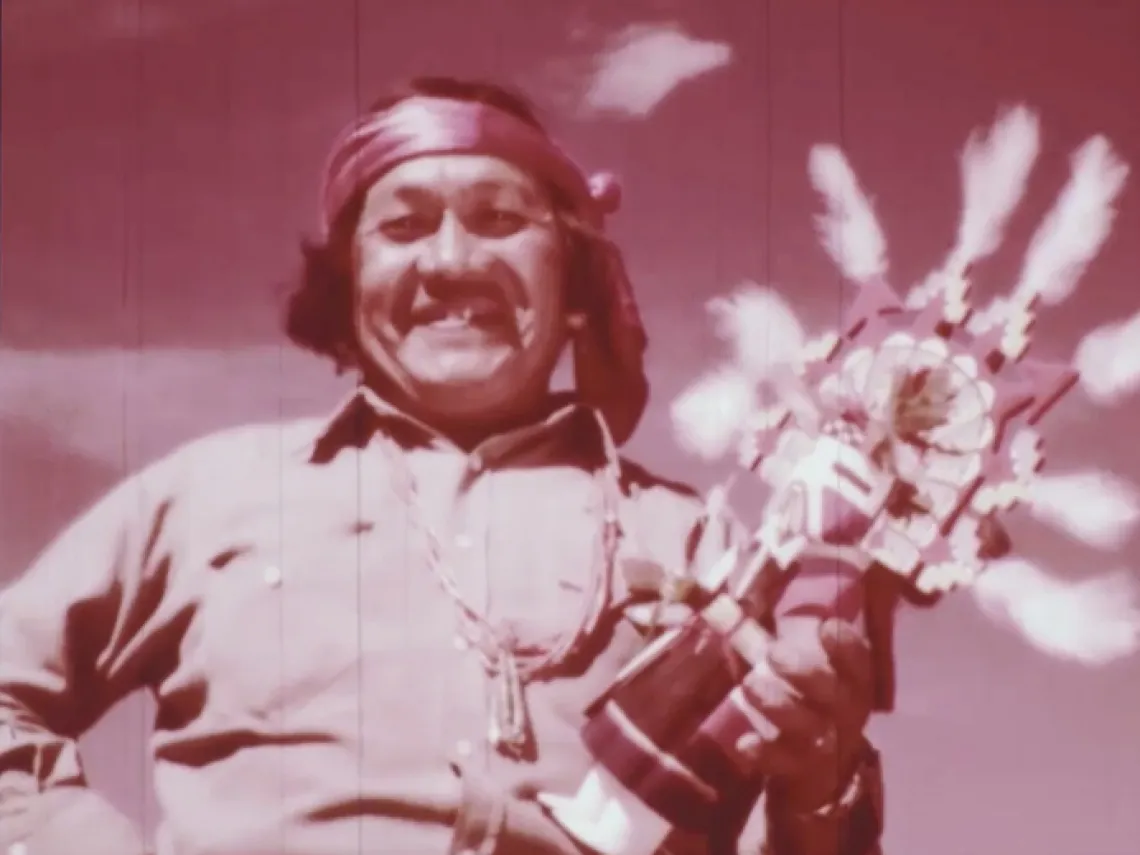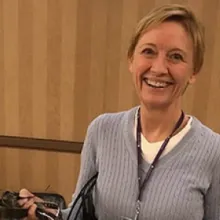Tribesourcing Project Receives New NEH Grant

Image from American Indian Film Gallery
University of Arizona scholar Jennifer Jenkins recently received a $325,000 Digital Humanities Advancement Grant from the National Endowment for the Humanities, or NEH, for the project “Tribesourcing Southwest Film: Digital Repatriation.”
With the NEH grant – one of three she is working on – Jenkins will help Native communities set up their own tribesourcing programs.
Jenkins, a professor in the Southwest Center and Department of English, will collaborate with Melissa S. Dollman (Yankton Sioux) from the University of North Carolina, and Rhiannon Sorrell (Diné) from Diné College. Jenkins is also affiliated with the Department of American Indian Studies, the School of Art, and and the School of Information.

The Tribesourcing Project, which also received an NEH grant in 2017, is based on the collection of nearly 500 films in the American Indian Film Gallery, housed at the University of Arizona. Jenkins and her colleagues have been working to "tribesource" the educational and sponsored films about Native peoples of the U.S. Southwest by recording alternate Native narrations.
The films contain valuable and beautiful visual imagery of Native life in the mid-20th century, but the original narrations are often inaccurate and culturally uninformed, Jenkins said.
"This project returns the knowledge source and authority to Native communities," Jenkins said.
From 2017 to 2020, the research team traveled to Native communities in Arizona and New Mexico to record the alternate, culturally-informed audio tracks by tribal members. Their progress was delayed in 2020 because of the pandemic.
With the new NEH grant, the team will continue to facilitate counter-narrations of AIFG films, expanding to include Southern Californian Native communities. Jenkins said a big chunk of the budget is dedicated to paying narrators.
“Payment is a really important part of recognizing the wisdom and labor that they put into repatriating these films,” Jenkins said. “With the original films, people would just go in and profit from [these communities] without compensating the people who appear on screen.”
The re-narrated films are available online and include the original narration in a separate audio track. “I think the essence of the project is actually that comparison because there's so much to be learned,” Jenkins said.
The team will offer a series of training workshops and digital guides in order to decentralize and shift control of the project to tribal libraries, archives, and museums. They will also offer workshops to help communities who wish to tribesource their own archived audio-visual materials.
The Mukurtu platform allows for local tribal control of access to cultural information contained in the films. Some of the re-narrated films are being used as part of language reclamation projects. And the Navajo Cultural Arts Program at Diné College is also using films that show basket making, weaving, and silversmithing to train young artists in traditional methods for crafts.
“The idea behind this grant is to put us out of business – to train the folks in Indigenous communities to run their own tribesourcing projects, including how to use the software, how to handle digitized media assets, and strategies for training narrators,” Jenkins said. “The project really has always been to decolonize these films and repatriate them."
Two Other NEH Grants
Jenkins also received a $50,000 New Directions for Digital Scholarship in Cultural Institutions Grant to fund the project “Indigenous Knowledges: A Digital Residency Exchange and Best Practices Pilot.”
The grant – a partnership between NEH and the UK’s Arts and Humanities Research Council – will fund a digital archivist exchange between a museum with significant Indigenous holdings in the United Kingdom (Wellcome Collection) and a library/archive in the Navajo Nation (Kinyaa’áanii Charlie Benally Library at Diné College). The archivists will collaborate to decolonize catalog and exhibit language in accordance with Indigenous Knowledge Systems. Jenkins will be a faculty advisor along with a colleague, David Stirrup, at the University of Kent.
Jenkins is also working with Jeffrey Banister, director of the Southwest Center, on an NEH Landmarks of American History Grant for the project "Arizona-Sonora Borderlands, Palimpsest of Cultures." (Palimpsest means something reused or altered but still bearing the traces of an earlier form.)
The grant will fund two residential workshops in summer 2022 for K-12 and community educators from all over the country who will come to Tucson and the Arizona Borderlands for one week to study the arts, environments, and plural cultures of the region.
“Our idea is to get people here on the border, teach them about the cultures and the people who occupy these spaces and to offer an alternative to the media frenzy about what is going on the border," Jenkins said.

